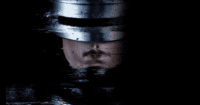Catherine Breillat is known as one of the more challenging of modern French auteurs, exploring sexuality in a provocative, probing fashion that can be uncomfortable, yet is fiercely intelligent and nuanced. Last Summer, a selection of the 2023 London Film Festival, is no exception, exploring the messy boundaries of sexual freedom, the complexities of consent, the legacy of trauma, and the cruel nature of denial. Léa Drucker’s Anne didn’t count on becoming an abuser, she didn’t feel like one, she knows the pain and confusion they cause and fought against them her whole professional life, yet one day, without realizing it, she woke up as one.
In Last Summer, a remake of 2019’s Danish drama Queen of Hearts, the protagonist Anne is a successful middle-class woman, wife to Pierre (Olivier Rabourdin), mother to two adopted daughters Serena (Serena Hu) and Angela (Angela Chen), and a devoted lawyer who specializes in representing underage victims of abuse. She literally made it her life’s work to led her power to young people who find themselves powerless. She’s taken off guard when her stepson Theo (Samuel Kircher) comes to stay and develops a bit of a thing for her. Suddenly, and absent-mindedly, without either of them seemingly planning it, they have sex.
Such a premise could all have felt very tawdry, like a soft core middle-aged fantasy, thinly veiled behind a wisp of intellectual curiosity and emotion. However, in the hands of Breillat, Last Summer becomes something much more authoritative, complicated, and challenging. At first, the affair between Anne and Theo seems like a relationship of equals, albeit a deeply misguided and immoral one. Theo is carefree and reckless, Anne reticent and coy. Their interactions are playful and a little sexy. But Theo’s naive confidence is just that, naivety, and still a boy of seventeen, impetuous, rash and impulsive, he’s in no fit state to conduct an affair with a grown up married woman, least of all his stepmother, and when the inevitable happens, Anne raises her defenses.
There’s an unspoken element to her past that is the key to her behavior, it’s not hard to put the pieces together: she mentions having a crush on an older man when she was fourteen, she was left infertile by an abortion at a young age and she’s evasive when asked about her first time.
She was groomed and raped as a teenager and when she grew up; she made it her life’s work to fight for young people in the same position. But trauma does strange things to some people, to their desire and their self-image. Anne doesn’t talk about what happened to her and she’s become a master of denial. She knows how abusers operate, knows it intimately, and when she finds herself one, she immediately begins employing all the same methods of denial and gaslighting she’s witnessed her whole life.
Here’s where Last Summer breaks out of the mold of a typical summer romance (devilish of the film’s title to deliberately evoke such an image) and becomes something special, something inquiring and provocative. Breillat’s vision for the film is exceptionally nuanced, intellectual, intoxicatingly intimate, and non-judgmental. As Anne doubles down on her mistakes, Breillat encourages us to see the tragedy in each of the central characters. Anne would never have done any of this if her perception of relationships hadn’t been so tarnished at such a young age, even as she enacts the same harm on her own naive young partner.
It’s a magnificent character portrait by Drucker, whose completely naturalistic performance never feels like an act, while capturing the practicality, and the emotional distance and numbness of her character. In every one of the film’s never-for-a-moment erotic sex scenes, her eyes stay fixed on the middle distance, taking as little physical pleasure with her boy toy as with her rigid spouse. Sex isn’t pleasure for her, its self-destruction, a willing loss of control, and a constant reminder of the most tainted moment of her existence. As callous and as uncomfortable to watch as her behavior is, it’s hard not to feel sorry for her, or simply to share in her frustration at the recklessness of the inconstant horny teenager she’s now gotten herself burdened with.
As that teenager, Kircher is fantastic too. Looking like a gallic, less skuzzy The Kid Laroi, he embodies the charm, the bravado and the fragility of adolescence perfectly. He cozies up to Anne as if its the most natural thing in the world, acts all casual and adult the way boys do until they’re rejected, upon which they transform into blubbering messes of unrequited emotional need. It’s insidious how well Last Summer almost gets you to side with Anne. She knows she’s crossed a line and her actions are motivated as much by shame as by self-preservation, but the fact is, she probably crossed a line long before she thought she had.



